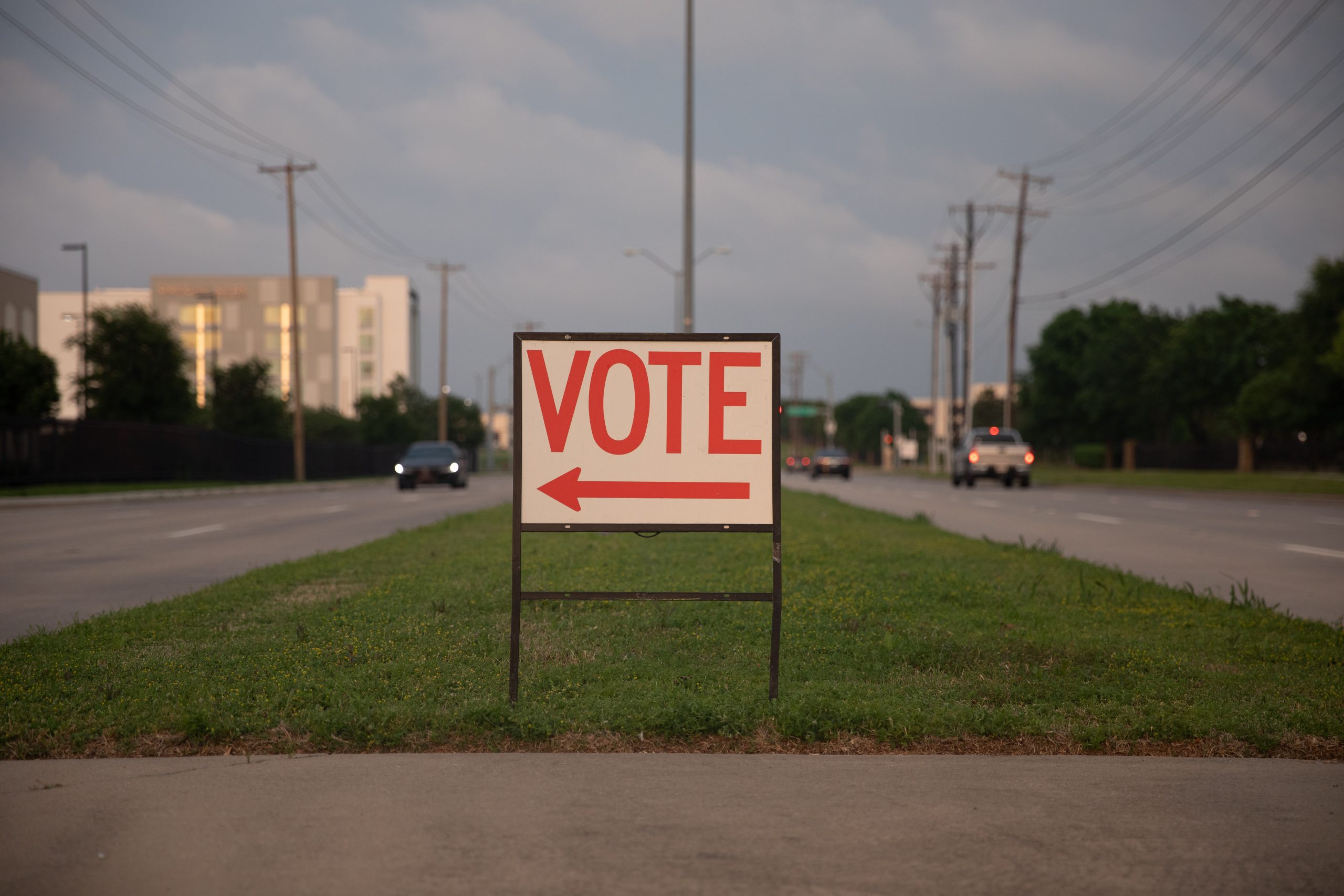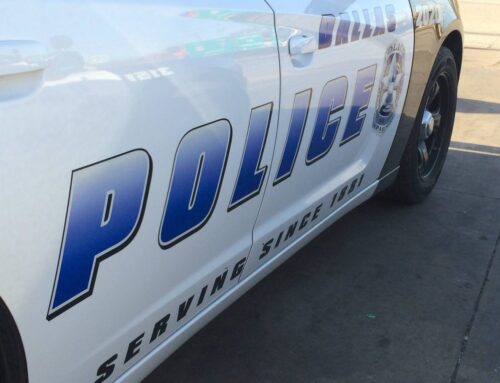As demonstrated by hour-long lines at the Audelia Road Branch Library, Election Season finally arrived in Lake Highlands earlier this week.
Early voting in Texas began this Monday, Oct. 21 and will continue until Nov. 1. The first day to request an absentee ballot is Oct. 25. Election Day falls on Nov. 5 this year.
With 18 Dallas City Charter amendments on the ballot and numerous officials up for election at federal, state and local levels, there is a lot of information to absorb at the polling place this year.
The ballot includes 4 citizen-driven amendments. These amendments were added to the ballot after receiving the minimum amount of signatures from citizens in a 60-day period.
Voter-driven amendments have generated considerable controversy since their introduction over the summer. Controversy around the Dallas HERO Act, or Propositions S,T and U, has even brought together a large and bipartisan group of city leaders, including Mayor Eric Johnson and District 10 Council Member Kathy Stewart, to ask citizens to vote against the amendments.
If passed, Proposition R, the other voter-driven initiative on the ballot, would restrict Dallas Police from issuing citations or making arrests for the possession of four or less ounces of marijuana, unless part of an ongoing narcotics investigation. The proposed amendment would also prevent police from using the odor of marijuana as grounds for search and seizure.
The remaining amendments were developed by city staff and the Charter Review Commission before being approved by City Council. The Dallas City Charter is reviewed every 10 years in accordance with state law.
To view a sample ballot, click here.
To help keep neighbors informed ahead of Election Day, we’ve compiled a voter guide of City Charter issues on the ballot that affect our neighborhood.
Proposition A
Proposition A deals with the Employees’ Retirement Fund, which is currently facing a shortfall in excess of $1 billion. The fund provides retirement and disability benefits for city employees, and is separate from the Police and Fire Fund. If approved by voters, the proposition would change the pay-in structure by increasing city contributions to close the funding gap in coming years.
Proposition C
City Council members’ current salary is set at $60,000 a year, and the mayor’s salary is set at $80,000 a year. This amendment would raise the salaries of both by $30,000, to $90,000 and $110,000, respectively. If passed, the amendment also provides for a yearly inflation-based adjustment in salary. Both salaries fall below those of their respective counterparts in Austin and Houston, but are well ahead of their peers in Fort Worth and San Antonio. It is also worth noting that Houston has a strong mayor form of government, where the mayor is responsible for direct supervision of all city departments, as opposed to Dallas’ council-manager government, where those responsibilities are placed with the city manager.
Proposition D
Dallas City Council elections, in accordance with the Dallas City Charter, take place in May of odd-numbered years. This amendment would remove the requirement for municipal elections to take place in May. Although there is no specific date mentioned in the amendment’s text, it is likely that City Council would vote to move city elections to November to coincide with state and other elections. Proponents of the move cite low May turnout and costs borne solely by Dallas County as reasons for the move.
Proposition E
Dallas City Council Members are limited to four consecutive two-year terms before they are ineligible to run again. In 2023, former District 10 Council Member Adam McGough reached the term limit and was replaced by current Council Member Kathy Stewart. Under the current City Charter, however, McGough is free to run again in 2025 for an additional eight-year stint. A term-limited Mayor would also be able to run again after sitting out for four years.
Proposition E would limit council members and mayors to hard term limits, removing the ability to run at any point after reaching a term limit.
Proposition G
This proposition would institute eligibility criteria for who can serve on Dallas’s Redistricting Board, which makes recommendations on city council district boundaries every ten years.
Proposition H
Proposition H would open service on city commissions and boards to non-citizen residents. Other cities, like El Paso and Austin, currently do not have a citizenship requirement for service on city commissions and boards.
Proposition I
Proposition I seeks to lower the required threshold for the number of signatures needed to place a citizen-driven initiative on the ballot, and also extends the time period allowed to collect the signatures. Currently, petitioners have 60 days to collect the required signatures. The amendment would extend that period to 120 days. The proposition would also lower the amount of signatures required from eligible voters in Dallas from 10% to 5%. In the May 2024 Election, Dallas reported over 1.4 million registered voters, making 5% close to 70,000 voters.
Proposition L
This proposition would create an independent Office of the Inspector General. The Inspector General currently operates under the City Attorney’s office investigating ethical complaints within city government. This amendment would see the inspector general report directly to the city council.
Proposition P
If terminated or laid off, city employees are able to appeal their termination to an administrative judge, provided they pay half of the court fees. This amendment would eliminate that requirement.
Dallas Hero Act
The Dallas HERO Act is a collection of three citizen-driven initiatives that organizers say promote public safety and hold city officials accountable.
Proposition S would make it possible for any resident to sue a city official that they believe has broken the city charter or any laws. Officials would also be required to waive governmental immunity in cases brought to suit in accordance with the proposed amendment.
Proposition T would tie the city manager’s salary and employment to a yearly quality-of-life survey.
“I can’t imagine why anyone would want to serve in law enforcement, code compliance — you can just go down the line — why you would want to work in a job that has dangerous and precarious circumstances with the public sometimes and not feel protected in your role,” D13 Council Member Gay Donnell Willis, who represents most of Vickery Meadow, recently told The Advocate. “How are you going to get quality applicants for police chief if you don’t have governmental immunity? We would see recruitment decline across many categories, and we would also see an exodus of our current employees. We would be the only city in the country that doesn’t have governmental immunity. Using a public survey to reward or fire the city manager puts us in the same situation. How are you going to get quality applicants for city manager if their job is based on a survey of fewer than even 1% of the population?”
Proposition U would require DPD to hire at least 800 new sworn officers, despite DPD’s well-known recruitment struggles. It would also call for excess revenue to be used for officer pay raises and to fund the struggling Police and Fire Pension Fund.
The largest police association in the city, the Dallas Police Association, has voiced opposition to the measures.
A bipartisan group of city leaders, including D10 Council Member Kathy Stewart and Mayor Erik Johnson, recently voiced resolute opposition to the proposals, which they say are incredibly dangerous to the integrity of the city government and its financial future.
“Seeing this many past and present city leaders voicing their agreement goes to the deep concern in local leadership about the consequences of these amendments,” Kathy Stewart recently told The Advocate. “On their surface, they look like they’re going to give us more accountability and more police officers, but when you dig in and see the financial and practical impact, they’d be devastating to the city budget, to city employees and to police officers who could lose their immunity and individually be subject to lawsuits.”
To read more about Dallas HERO, click here.
Proposition R
The Dallas Freedom Act, or Proposition R, is a measure that seeks to limit enforcement actions taken against those possessing less than four ounces of marijuana by Dallas Police. If passed, the amendment would prohibit officers from issuing citations or making arrests for possessing less than that amount and would eliminate the odor of marijuana as probable cause for search or seizure. It would also prohibit city funds from being used to test cannabis-related substances to determine THC content.
Ground Game Texas, a left-leaning advocacy group based in Austin, was the organization responsible for getting Proposition R on the ballot. Supporters say that marijuana offenses and arrests disproportionately affect marginalized communities, and that police resources are misspent on marijuana offenses. Willie Nelson recently voiced support for the proposition.
However, Texas Attorney General Ken Paxton recently sued five cities for similar ordinances. Although the case was thrown out by a district court judge, there have been some questions as to its legality. District 12 Council Member Cara Mendelsohn and Mayor Johnson recently wrote in a Dallas Morning News opinion piece that the amendment “appears to be straight-up illegal.” Kathy Stewart has voiced similar concerns.
To read more on Proposition R, click here.
The Ballot Box
Early voting in Texas ends on November 1. To find out about early voting locations in Lake Highlands, click here.
Election Day is November 1. To find information on mail-in voting, your polling location and more, click here.






